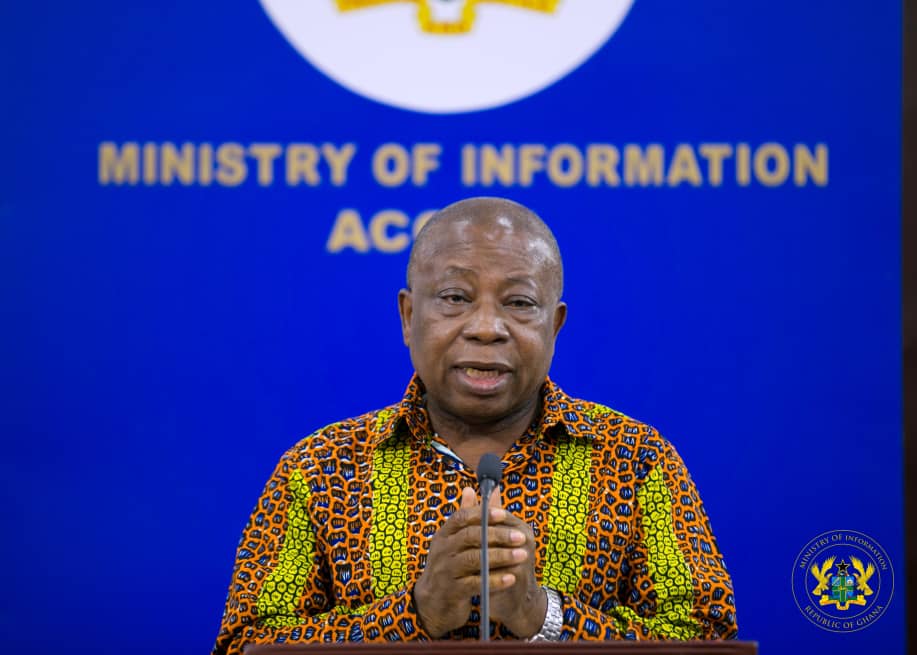
Making payment convenient: Health Minister calls for review of NHIS Act
The Ministry of Health has called for a review of the National Health Insurance Act that has scheduled the payments of outstanding claims to service providers from within three months to four weeks.
This is to enable the ministry to be able to have a more convenient payment schedule as the four weeks required now was short and prone to challenges.
Advertisement
The Minister of Health, Kwaku Agyeman-Manu, made the call when he appeared before the Public Accounts Committee (PAC) of Parliament to answer questions with regard to his ministry raised in the 2020 Report of the Auditor-General on Public Accounts of Ghana: Ministries, Departments and Agencies (MDAs) for the Year Ended December 31, 2020.
He was answering questions on the payment of NHIS claims.
“Statutorily we have been working on the three months basis for a very long time and the Health Insurance Act says three months. After the amendment of the Act, the time has changed to four weeks’’.
“Practically, maybe we have to revisit the regulation. From submission of claims to processing and payment can’t be done within four weeks. So we would go and get our work done and come back to you to support us on how the regulation could be amended,” he told the committee.
Context
Mr Agyeman-Manu was answering questions from a member of the PAC and Member of Parliament (MP) for Buem, Kofi Adams, who wanted to know the current status of reimbursement of payment to accredited health institutions, especially for the 2019 and 2020 period.
The minister said as of now, the government had cleared arrears up to April 2022 and had seven more months in arrears for last year but was working to settle the arrears as soon as possible.
However, his attention was drawn to the fact that the government had four weeks to receive claims, process and make payment and not three months in accordance with the amended NHI Act.
Responding further to the grace period correction, he said the Act before it was amended indicated that payment should be done in three months after receipt and processing.
“Honourable Chair, reimbursement has been done up to April last year and this month we are reimbursing for May last year. So we still have about seven months outstanding.
“And statutorily we have three months for submission of claims, processing and payment and so what will be outstanding as debt effectively will be about four months and we are working on trying to clear it as soon as possible,” he said.
Regulation 38 of the National Health Insurance Regulations requires a claim of payment of health service submitted to the scheme shall be paid within four weeks after receipt of the claims from the healthcare facility unless there is legal impediment.
According to the report, contrary to the above provision, the auditors noted that as of August 31, 2020, the NHIS owed 46 Budget Management Centres (BMCs) GH¢ 20,999,551.10 for services rendered between June 2019 and August 2020.
The auditors recommended that the Heads of the BMCs should engage the CEO, NHIA for reimbursement of the outstanding amount.
Co-payment
With the delay in payments of claims, some health facilities last year resorted to co-payment, compelling people seeking medical attention at those facilities to pay cash for some services, despite being on the NHIS.
This prompted the Chief Executive Officer (CEO) of the National Health Insurance Authority (NHIA), Dr Bernard Okoe-Boye, to caution that facilities engaged in that co-payment arrangement risked losing their accreditation.
"I am announcing confidently that very soon the accreditation of health facilities which additionally charge active NHIS patients with impunity will be revoked," he added.
He said it was worrying that some patients still complained about making payments after visiting hospitals, although they were active members of the scheme.
“The NHIA annually injects GH¢120 million into the health sector, an average of GH¢1.5 million is paid to each health facility every month across the nation.
"So we are pumping so much into the health sector on a monthly basis and, therefore, we demand that patients who visit the hospitals should be taken care of and not be made to pay for services covered by the NHIS," he said.
Admitting that there were often delays in the payment of claims, Dr Okoe Boye, however, attributed the delay in the payment of claims partly to the fact that "some of the tariffs are high and unrealistic."
Writer’s email: [email protected]




